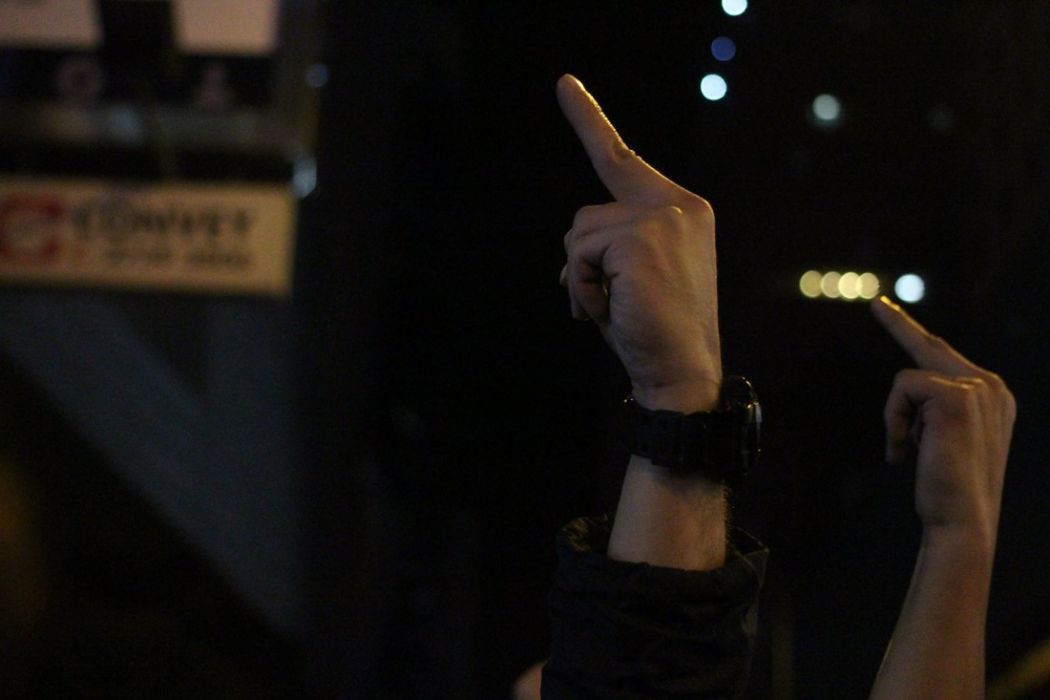People have been complaining about the deteriorating standards of behaviour among the young since Socrates was executed for corrupting the youth of Athens with the notion that truth was the highest good. Rioting, like other strenuous sports, appeals mainly to people in their late teens/early 20s, so recent events have provoked much speculation about what is wrong with our young things.

For up-market tastes there are the offerings of Prof Richard Wong, which appear rather incongruously on the back page of the SCMP’s business section. Last week we had Hegelian historicism and post-modernism. This week German romanticism, the decline of Liberalism and post-modernism again. I confess to some doubts about this approach. I do not claim to understand those noisy discussions which fill the air in Mong Kok teahouses but I do not believe they are devoted to the rival merits of Hegelian historicism and Popper’s criticism of them.

Post-modernism is a purely academic construction with no points of contact with the real world. It asserts that there is no such thing as truth so all beliefs are valid, depending for their status only on the fervour with which they are held. This is the sort of thinking which, as Nassim Taleb puts it, people with jobs in the real world leave for the weekends. Most of us cling to the belief that there is a real world, that some words explain it better than others, that actions have consequences and these can to some extent be predicted and evaluated.
For a cheap and cheerful explanation of current events, on the other hand, we can always depend on Rita Fan, who said that young people were being led astray by “bad media”. This seems an unkind slur on the Hong Kong media, most of which have already bowed to the wind from the north and some of which are actively fanning it. In any case this explanation flies in the face of a great deal of research which has revealed that media really have very little effect on what people think and even less on what they do.

Somewhere in between we have the complaint that our young people “do not understand China.” I find this extremely hard to believe. In the first place Hong Kong is the only place in China where the media are allowed – if they wish, and some of them don’t – to report China matters as honestly as they can. If you want to understand China then Hong Kong is probably the best place in the world to do it, because you can avoid the avalanche of official lies. Also, a great many people in Hong Kong come from China, and most of the rest have visited it, often frequently. Anyone who is in the least bit interested can feast on personal experiences of China, his own and other people’s. I believe Hong Kong young people know China very well. They know it is a rising power with a growing economy. They also know it is a nasty police state which combines traditional despotism with modern technology to promote the compulsory pretence that it is loved and admired.
Another interesting suggestion puts the blame on the Liberal Studies subject, now compulsory in all schools. This, we are told, gives teachers — who are all rabidly pro-democracy as we can see from the people they put in Legco — the chance to corrupt young minds with unhelpful Western notions. You know the sort of thing: that we are entitled to life, liberty and the pursuit of happiness, or that our government should observe and implement the Universal Declaration of Human Rights. Shocking stuff. But this surely overstates the affection which most schoolkids feel for the material being shovelled over their desks. University students, in theory, are encouraged to think independently, leading to a regrettable tendency to think things which their elders disapprove of. But for most of the school population this is a distant dream. The purpose of the Hong Kong education system, as they experience it, is to reduce the number of people eligible for university to a manageable number by eliminating them and their friends from the queue.

Some observers have pounced on the fact that many of those arrested during or after the disturbances were unemployed. If only we could create jobs for these idle young men then all would be well, they think. But this is surely confusing a symptom with a cause. Of the people who feel dissatisfaction some will grumble to their friends, some will protest peacefully, some will protest robustly. People with jobs and families are likely to stop at this point. Those with neither will be more tempted to go on to rioting, because they have little to lose. That does not mean they are the only people who are dissatisfied. The other day I was chatting with a young man who would not under any circumstances riot. He is a civil servant in one of the more socially useful departments and has a promising career ahead of him. As we picked our way through the freshly-constructed desert between the old Star Ferry pier and the new one he suddenly said “Hong Kong is dying. No. Hong Kong is dead.”
Why do people with extensive education and impeccably law-abiding instincts feel this? I suppose because the old colonial government, with all its flaws, had the useful characteristic that its main objective was a happy and prosperous Hong Kong. The territory was a historical embarrassment to the UK, not an opportunity for exploitation. Governors were expected to run a system which produced levels of social welfare consistent with European ideas, and left to get on with it. We now have a government which presumably wishes to see a happy and prosperous Hong Kong, but that is not its main objective. Success is not achieved by pleasing Hong Kong people. indeed dismal poll ratings roll off our leaders like water off a duck’s back. Success is getting a pat on the head in Beijing. Unfortunately happiness and prosperity are not a simple matter. The idea that they can be achieved as a happy by-product from a government prostrating itself before a distant tyrant is not very promising.
